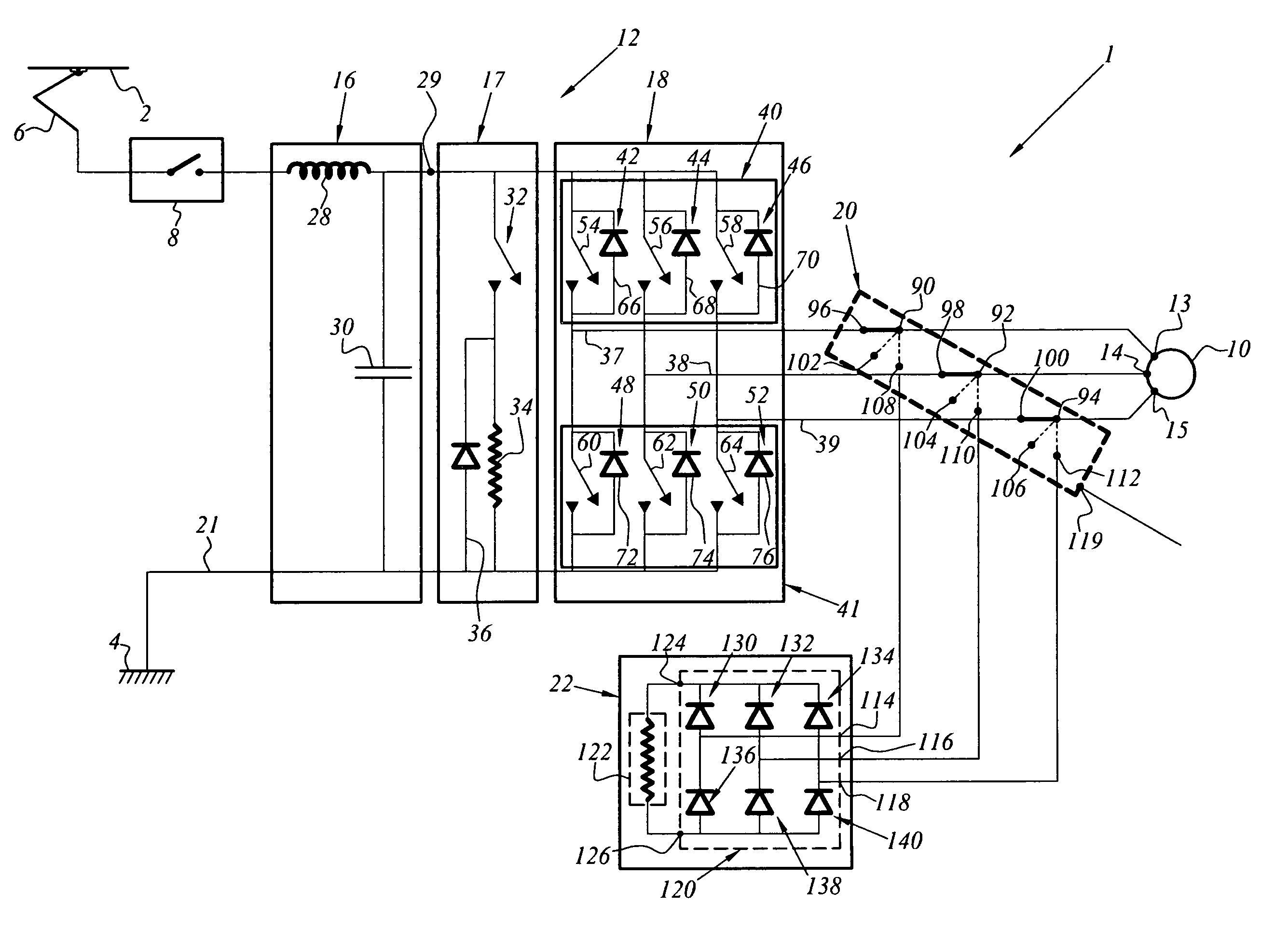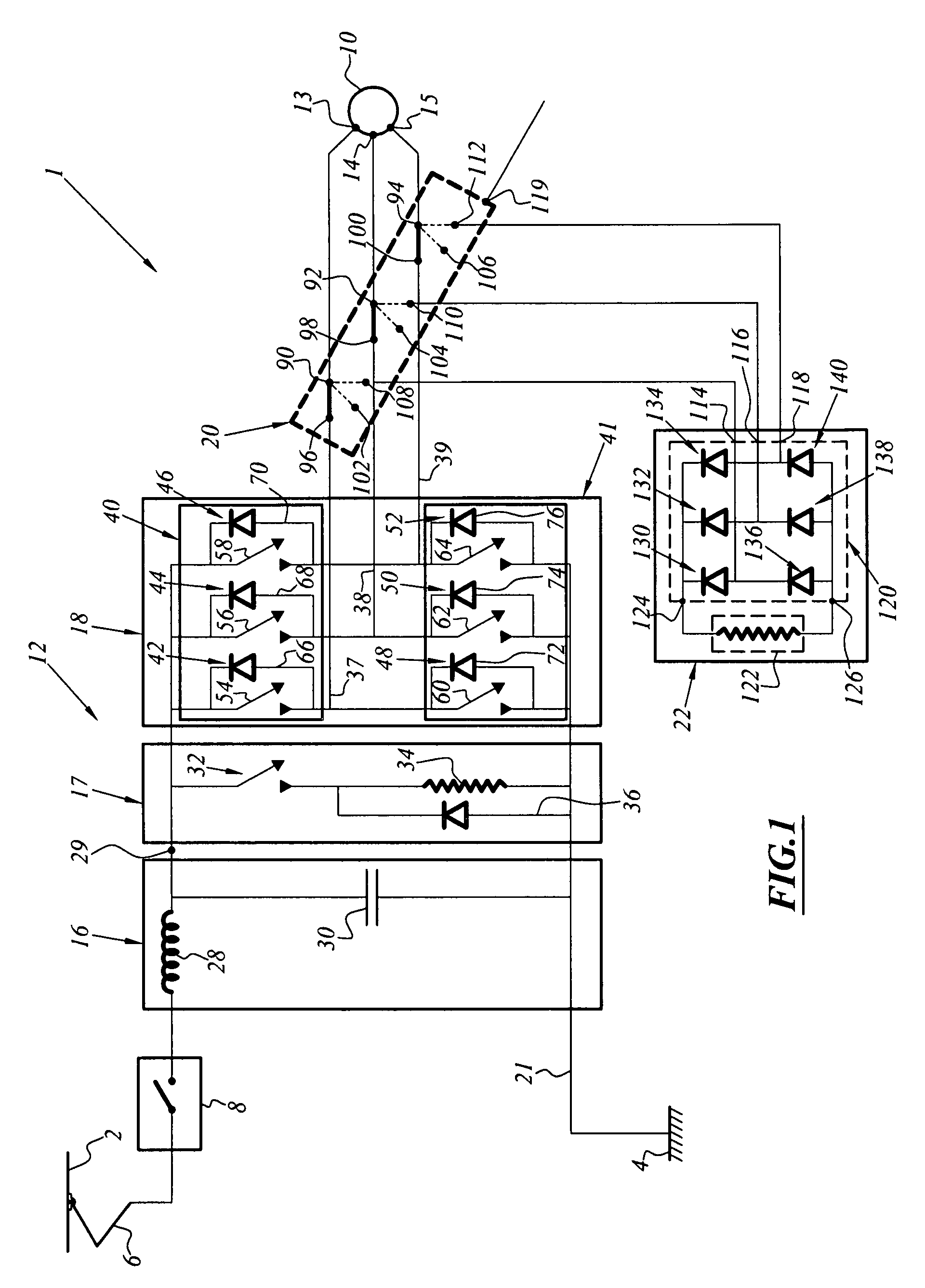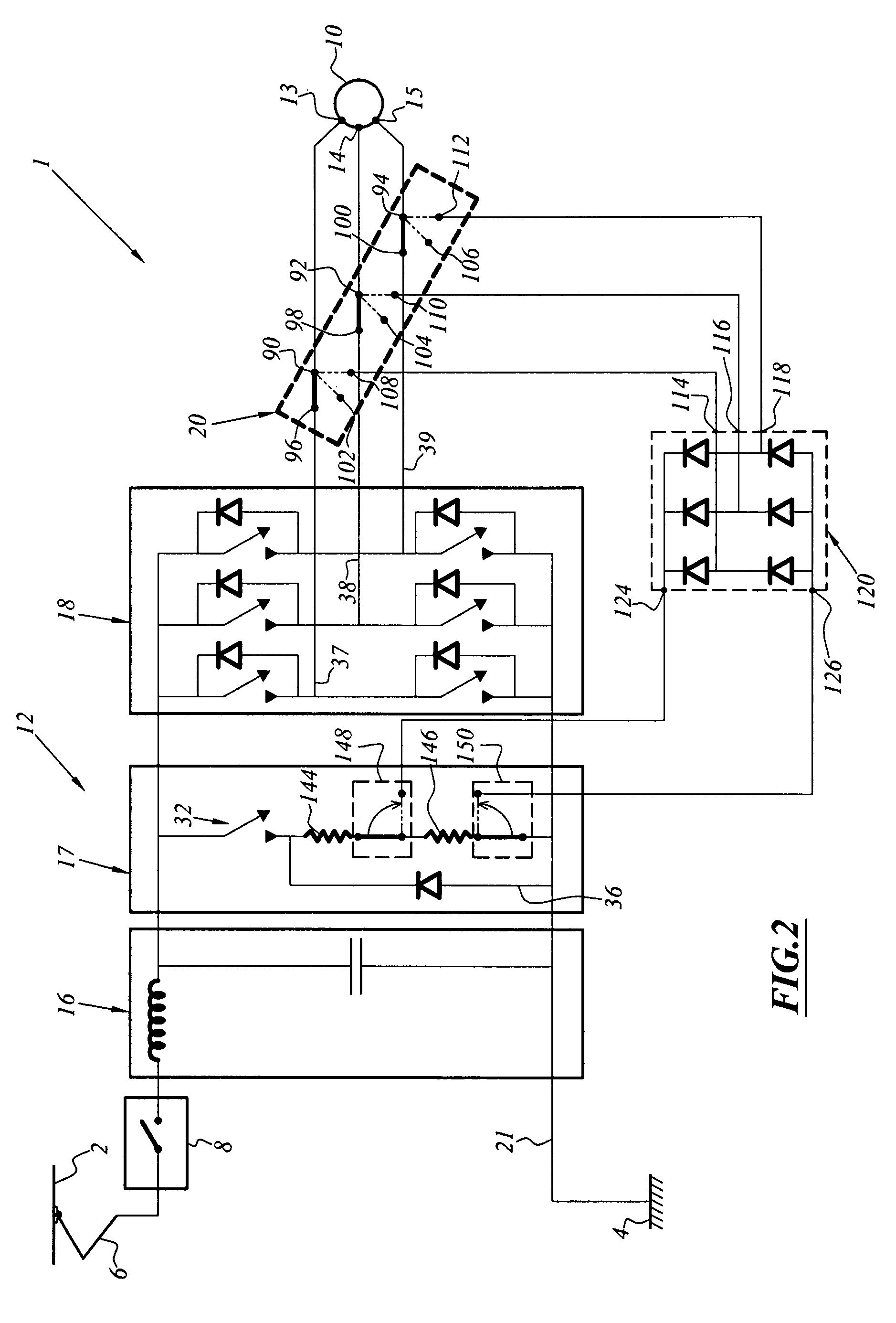Rheostatic safety braking device having a bipolar resistive assembly with permanent magnet motor
a technology of permanent magnet motor and rheostatic safety braking, which is applied in the direction of motor/generator/converter stopper, dynamo-electric converter control, instruments, etc., can solve the problems of inability to adjust, the probability of failure must be extremely low, and the inability to be secur
- Summary
- Abstract
- Description
- Claims
- Application Information
AI Technical Summary
Problems solved by technology
Method used
Image
Examples
first embodiment
[0025]FIG. 1 illustrates a so-called electric safety brake integrated in an electric traction chain 1.
[0026]The traction chain 1 is supplied with electrical power by means of a catenary line (or a third rail) 2 which is under high voltage and which is referenced by a ground 4 which is connected to the earth.
[0027]The electric traction chain 1 comprises a pantograph (or skate) 6 for capturing electrical energy from the catenary line 2 followed by a line circuit-breaker 8 which acts as a main switch / contactor between the traction chain 1 and the catenary line 2.
[0028]The electric traction chain 1 also comprises a rotating electromechanical machine 10 which is capable of being supplied with electrical power via an electronic power converter 12.
[0029]The rotating electromechanical machine 10 in this instance comprises a stator which has a three-phase power supply and which is provided with electrical input terminals 13, 14, 15 and a rotor whose excitation is provided by a permanent magn...
second embodiment
[0059]FIG. 2 illustrates the electric safety brake which is integrated in the electric traction chain.
[0060]The traction chain 1 is similar to that described in FIG. 1 and differs in that the rheostatic brake resistor 34 of the chopper 17 of FIG. 1 is replaced by an assembly of two resistors 144, 146 in series, in that the resistor which is located closest to the earth return line 21, in this instance the resistor 146, acts as a load resistor for the electric safety brake, and that there is arranged at one side and the other of the resistor 146, two electromechanical commutators 148, 150, one of which, 148, allows a terminal of the resistor 146 to be connected, either to the resistor 144 or to the output 124 of the diode bridge 120 of the electric safety brake and the other, 150, allows the other terminal of the resistor 146 to be connected either to the output 126 of the diode bridge 120 of the electric safety brake or to the earth return line 21 of the chopper.
[0061]That is to say...
PUM
 Login to View More
Login to View More Abstract
Description
Claims
Application Information
 Login to View More
Login to View More - R&D
- Intellectual Property
- Life Sciences
- Materials
- Tech Scout
- Unparalleled Data Quality
- Higher Quality Content
- 60% Fewer Hallucinations
Browse by: Latest US Patents, China's latest patents, Technical Efficacy Thesaurus, Application Domain, Technology Topic, Popular Technical Reports.
© 2025 PatSnap. All rights reserved.Legal|Privacy policy|Modern Slavery Act Transparency Statement|Sitemap|About US| Contact US: help@patsnap.com



